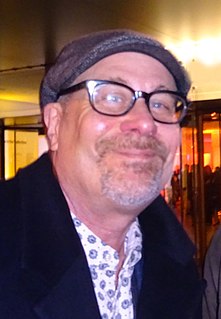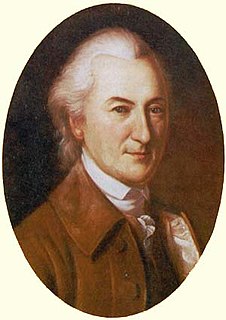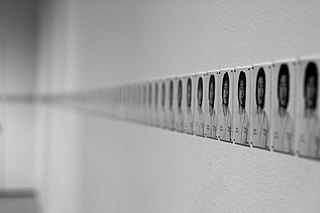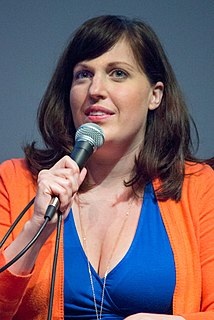A Quote by Robert Hass
The thing I learned is that the work is getting done by people who dig in and work on a particular project: the people who spend 20 years sustaining a theater for black teenagers in Chicago; the people who reintroduce sticklebacks into Strawberry Creek in Berkeley and then wait patiently for the first egrets to show up.
Related Quotes
Racism is when you have laws set up, systematically put in a way to keep people from advancing, to stop the advancement of a people. Black people have never had the power to enforce racism, and so this is something that white America is going to have to work out themselves. If they decide they want to stop it, curtail it, or to do the right thing... then it will be done, but not until then.
Chicago theater vs. New York theater. There's just nothing to say about it really. If you've seen Chicago theater, you know that the work is true to what is there on the page. It's not trying to present itself with some sort of flashy, concept-based thing. It's about the work, and it's about the acting you're about to watch. So acting-based theater feels like it was born there to me.
You can't actually hire and fire people inside of an open source community. Which means that getting people to work together is much more along the lines of making sure that people have the tools they need both to get their work done but also to know what is being done by other people and how to take that to their employer and tell that story to their employer and to show this is why the community is good and this is why we're working on these sort of things because it helps us over here.
Value investing strategies have worked for years and everyone's known about them. They continue to work because it's hard for people to do, for two main reasons. First, the companies that show up on the screens can be scary and not doing so well, so people find them difficult to buy. Second, there can be one-, two- or three-year periods when a strategy like this doesn't work. Most people aren't capable of sticking it out through that.
For me, everything is still possible and I am as determined as ever. I believe first that the project of a people does not die. It is the project of freedom for a people, it is a project of sovereignty. And since the nation exists, it has the right to its own state. I will work to advance it in that direction.
If the white man can come here uneducated and as an immigrant, and within 10 or 15 years set up an industry that provides job opportunities and educational opportunities for black people, then if the black man, the black leadership, who has access to all of this money and has all of these degrees today, can't use his talent and his know-how to set up business opportunities, job opportunities, housing opportunities for the black people the same as the white leaders have done for white people, then these black leaders need to get off the boat.
I know I am a human being. I can give myself to one year for a project. That is why I say I'm primitive in the way I work, especially compared to most artists. I came to New York in 1974, knowing that it is the art center of the world. But I didn't go to find people for my work. I do the work, and the people come to me, and I learn from them. That has always been my approach - to do the job first and then to respond to it after I finish and learn what people think about it. That's how I develop, and I'm more of an outsider in that way.
I've always loved film more than theater, and film may be more closely related to making a record because you have that ability to go in and do your work and have no judgment around it, and feel honest. Then, much later, it's presented to people. But in theater, people come backstage after a performance and you're about to do the same play again the next night, and people say, "Well, I didn't really believe that emotion" or whatever. It's really hard for me, I like to be closed up and just do the work.
The thing about theater that always and still kind of makes me edgy is that you work and work and work and work, and then you're just in performance mode, and then you have to just be on; the work is done, and then you just have to do it over and over again, so you're just constantly at that performance level.







































